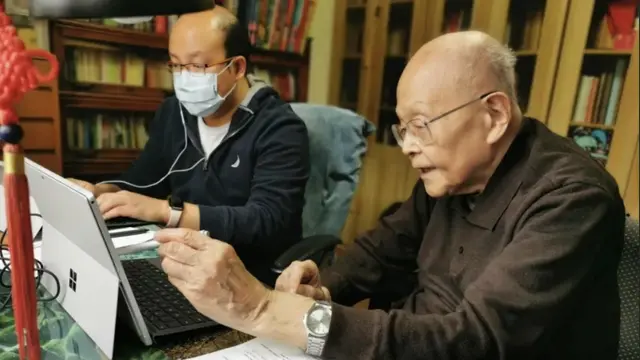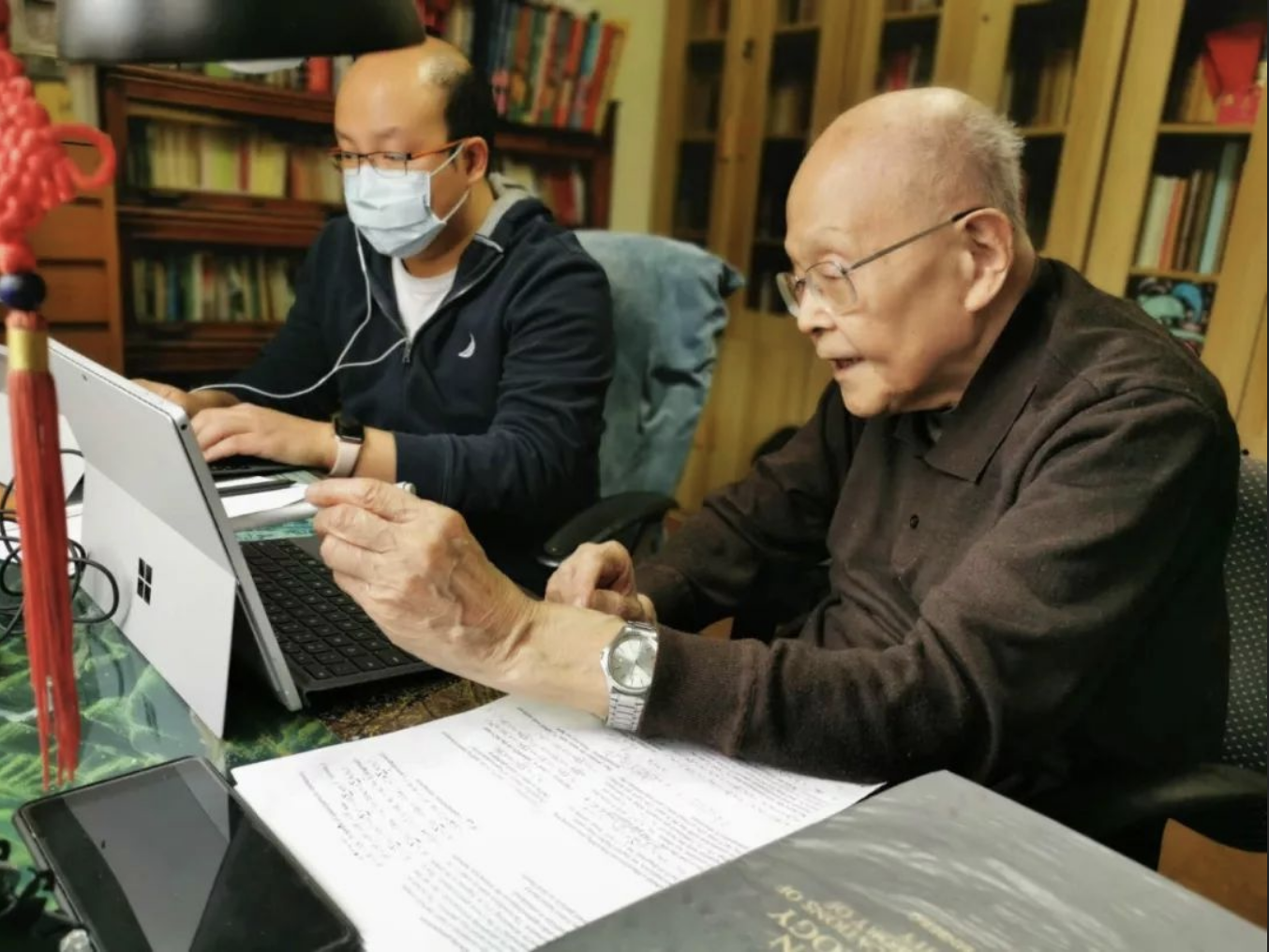
Due to the novel coronavirus outbreak, a number of schools in China are now embracing online platforms as a method of teaching. As many students have had to remain at home to minimize human interaction, schools have been pushing forward e-teaching tactics.
However, most teachers have never given online teaching classes before, so this is something new for them too. They have to learn to speak naturally in front of a camera, use a digital pen during presentations, and keep the students engaged online via remote interaction.
This may sound easy for many, but it's not so simple for some older teachers.
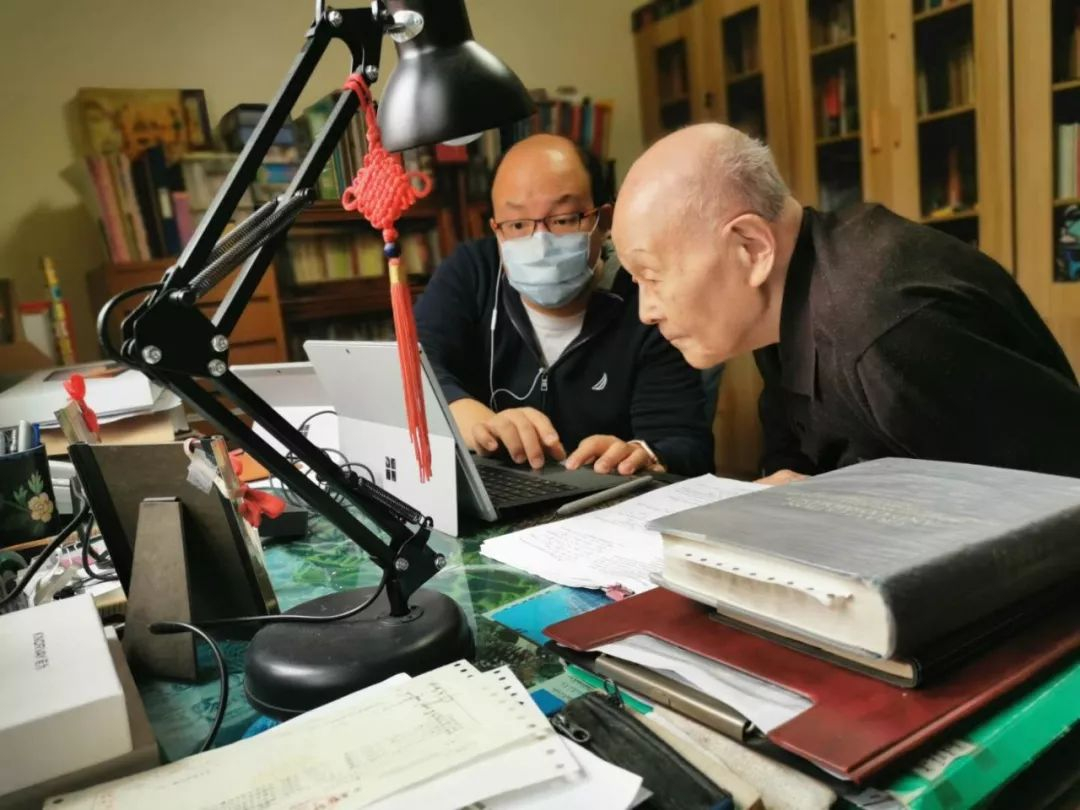
Zhang Li (R) and Hu Jiazhong (L) give a lecture through an online platform. /Tsinghua University
Ninety five-year-old Zhang Li is a professor of the Department of Electronic Engineering at Tsinghua University. He is the oldest professor in the school with over 70 years of teaching experience.
Like many educators in China, Professor Zhang has been working remotely. He launched an internet cloud classroom on February 20, teaching students from around the country who are enrolled in the course of Quantum Mechanics.
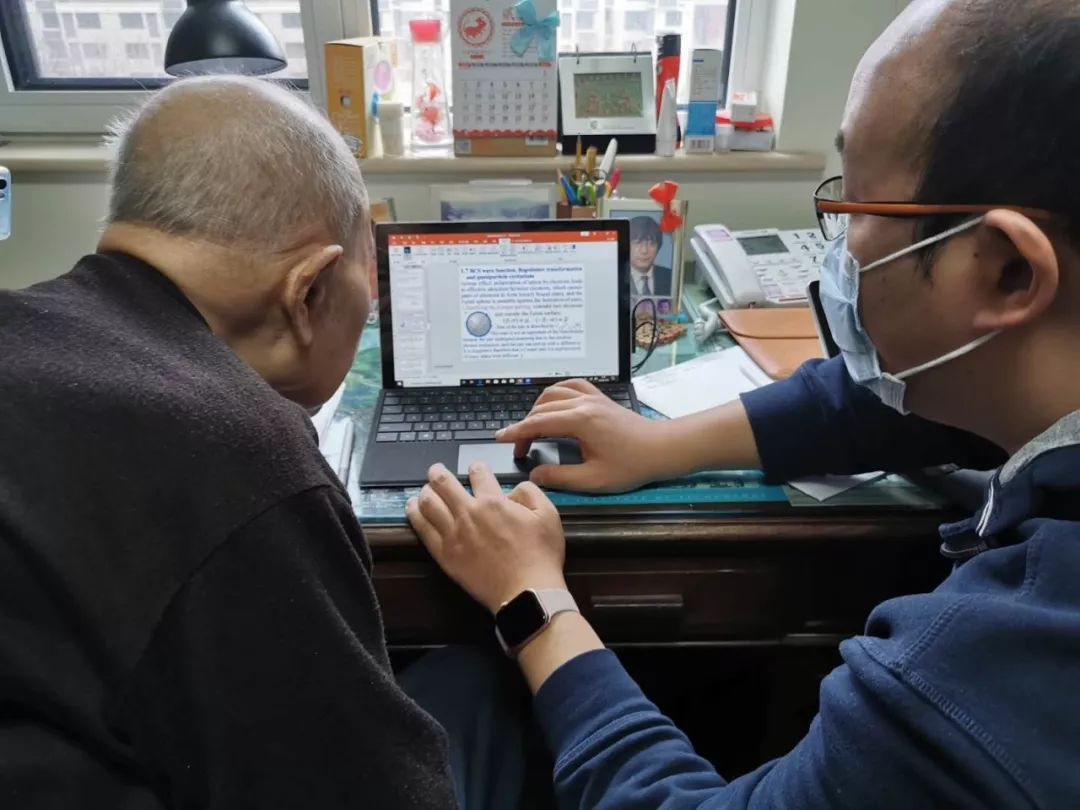
Zhang and Hu give a lecture through online platform. /Tsinghua University
Zhang's study roomis not spacious, with two bookshelves at the corner and an old desk next to the window. There are a lot of items on the desk, including an old-fashioned lamp, telephone, and several books. The new computer in the center is particularly eye-catching.
The man seated beside Zhang is Hu Jiazhong, an assistant professor of the Department of Physics at Tsinghua University. He joined Tsinghua several months ago with a PHD from the Massachusetts Institute of Technology.
Hu works as an assistant to Zhang, and taught him how to use the online platform for livestreaming, while giving lectures together with Zhang on Quantum Mechanics.
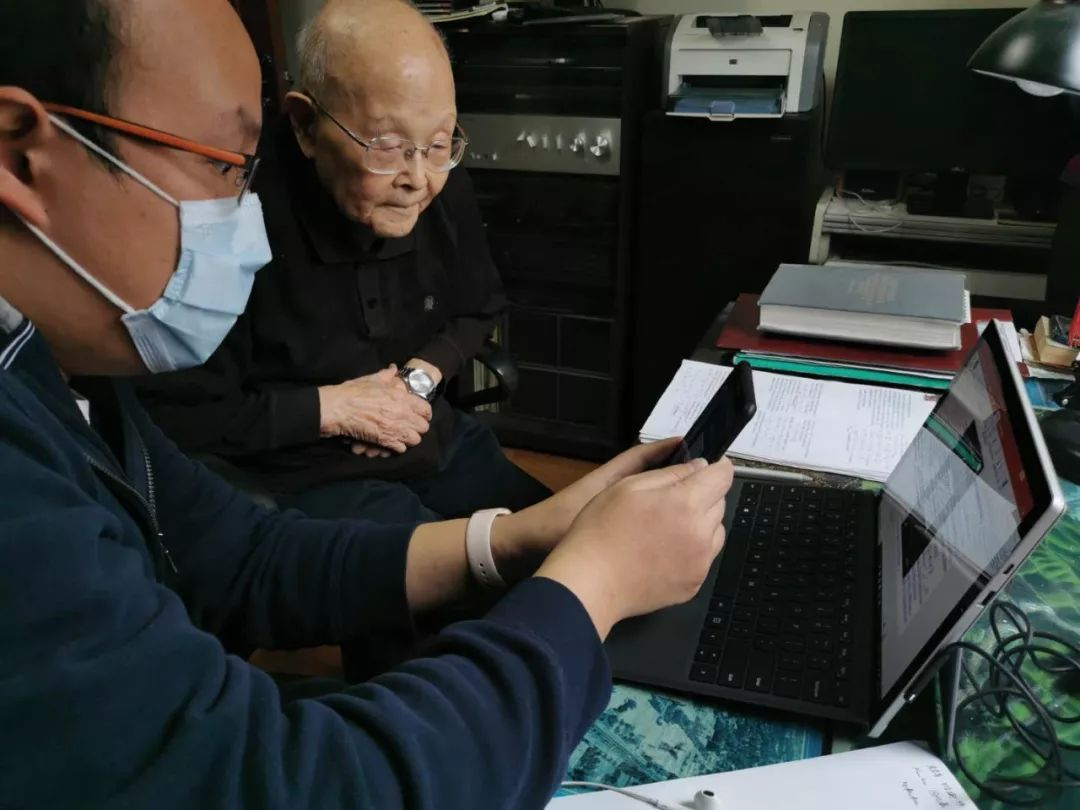
Hu helps Zhang to use the online platform. /Tsinghua University
With an electronic alarm sounded by the system at 9:50 a.m., the class officially started.
"Hey guys, can you hear our voice? If there is no voice, please report it in the WeChat group ( a Chinese social media App )," said Hu.
"Good morning, teachers," students responded successively.
"Good morning. Today we are going to talk about a very important content of the Quantum Effect chapter: superconductivity. Let us first learn about the BCS wave function," Zhang said and opened a Powerpoint file.
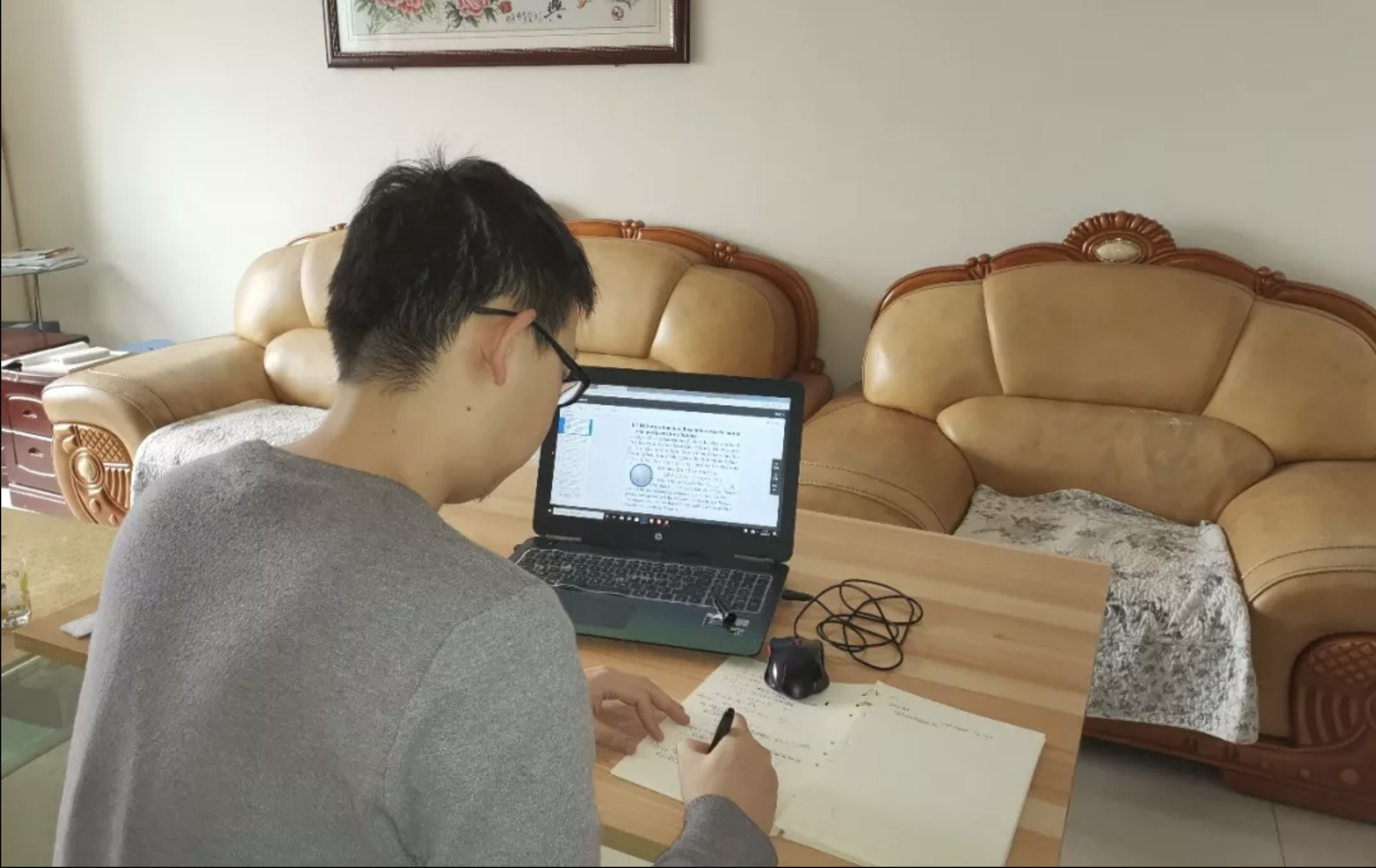
Zhang Zhongchi studies at home through the online platform. /Tsinghua University
"I chose this course for Professor Zhang and Professor Hu. This time they gave the lecture together, it's a big surprise for me," said Zhang Zhongchi, an undergraduate student in the Department of Physics who was being quarantined at home in Jinzhong, north China's Shanxi Province.
He explained that both teachers have their own merits. Professor Zhang's lectures are very rigorous, the logic is clear, and he is good at speaking from the perspective of history. Professor Hu knows the frontiers of current research and technology, and has many new ideas.
"It's more fulfilling and easier for us to understand the course if the two professors work together."
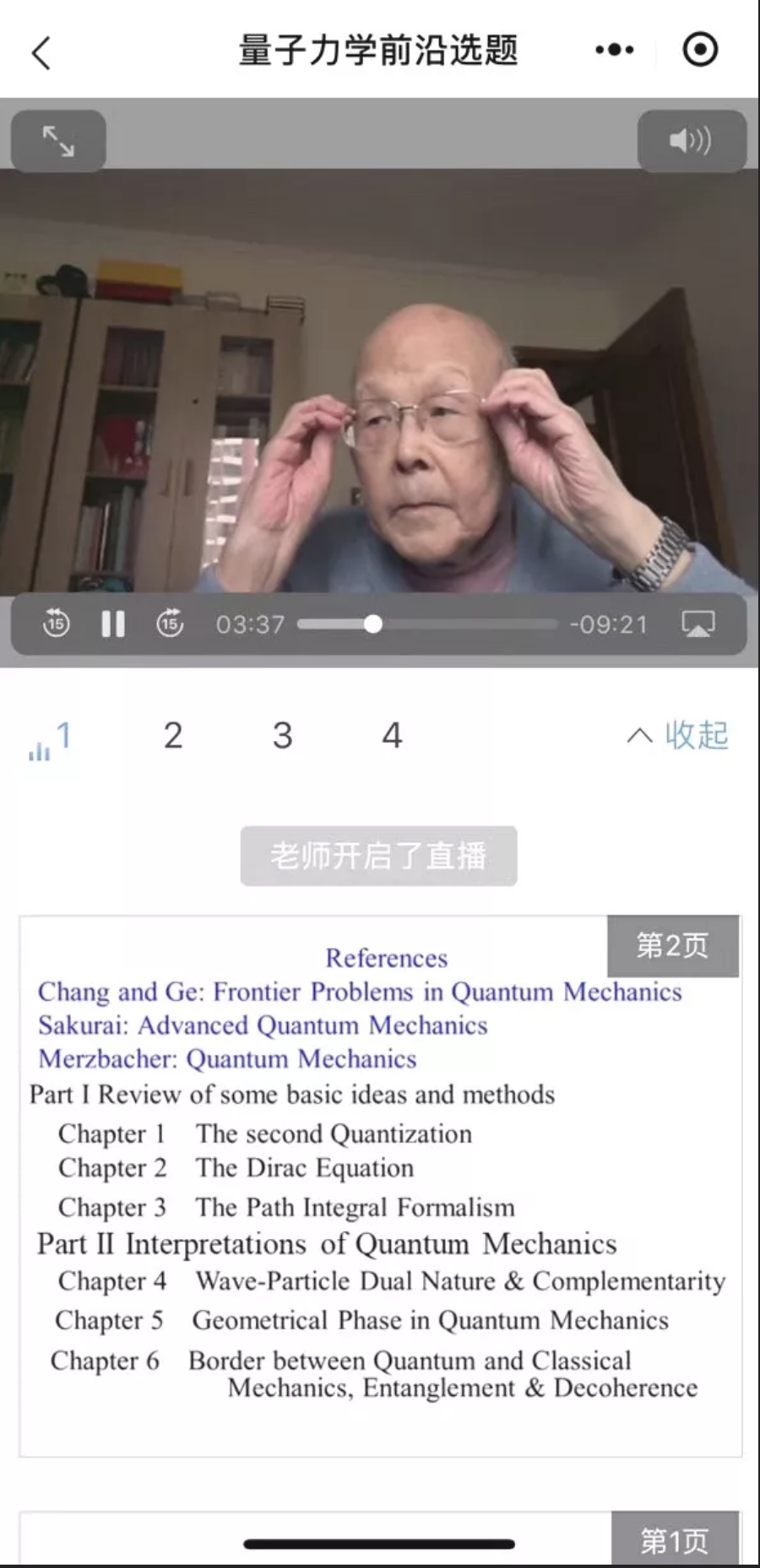
Screen shot of Zhang Li's online course. /Tsinghua University
"The biggest challenge I may face, is that my age makes my thinking less agile than when I was young," Zhang said with a laugh.
"The internet cloud classroom is simply too good, especially for students," Zhang said. Students in traditional classrooms usually do not dare to ask questions, while in online classrooms, most of the students are willing to ask questions, and teachers can answer them immediately. Moreover, they can easily communicate with each other to exchange different thoughts.
"Students must dare to think, dare to ask questions," Zhang repeatedly emphasized. In his opinion, good thinking and daring to ask question are necessary qualities for scientists, especially for young researchers.
After giving several lectures, Zhang has now fully adapted to the online teaching method.
 简体中文
简体中文

